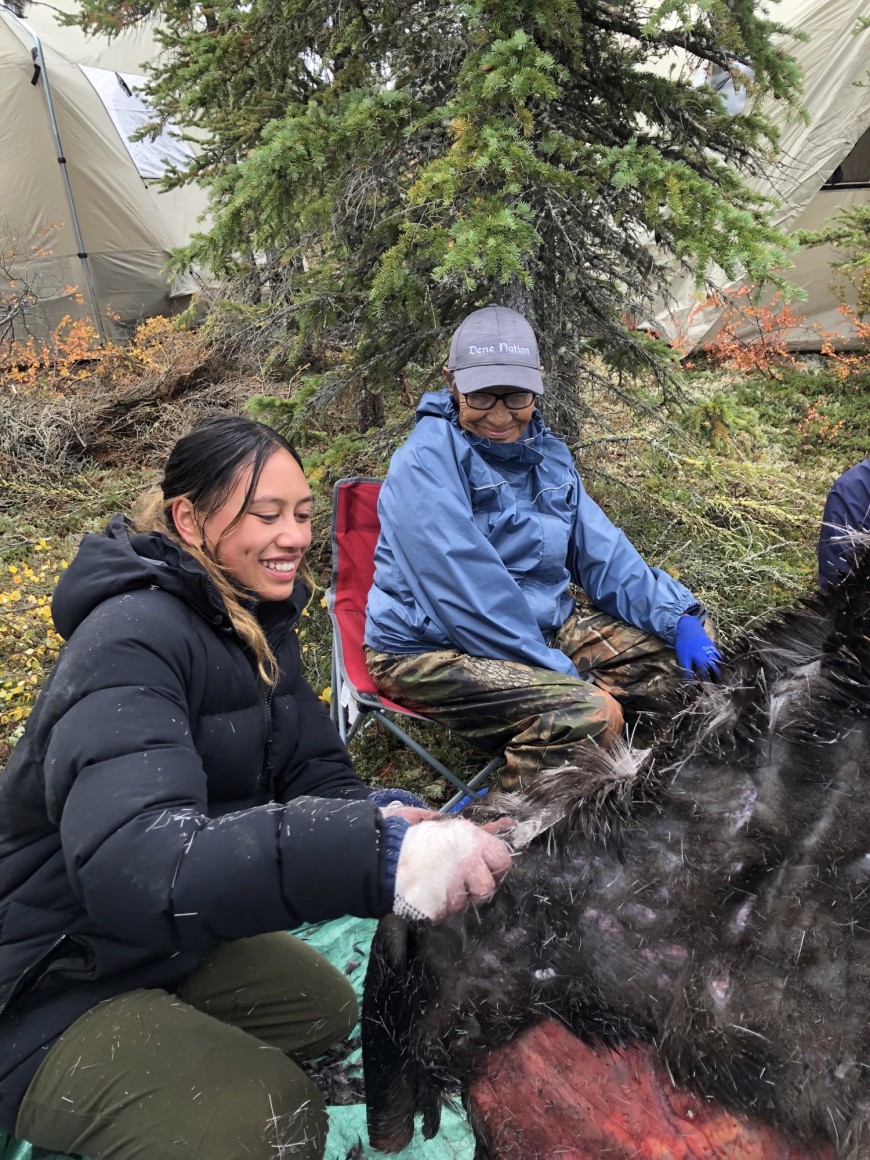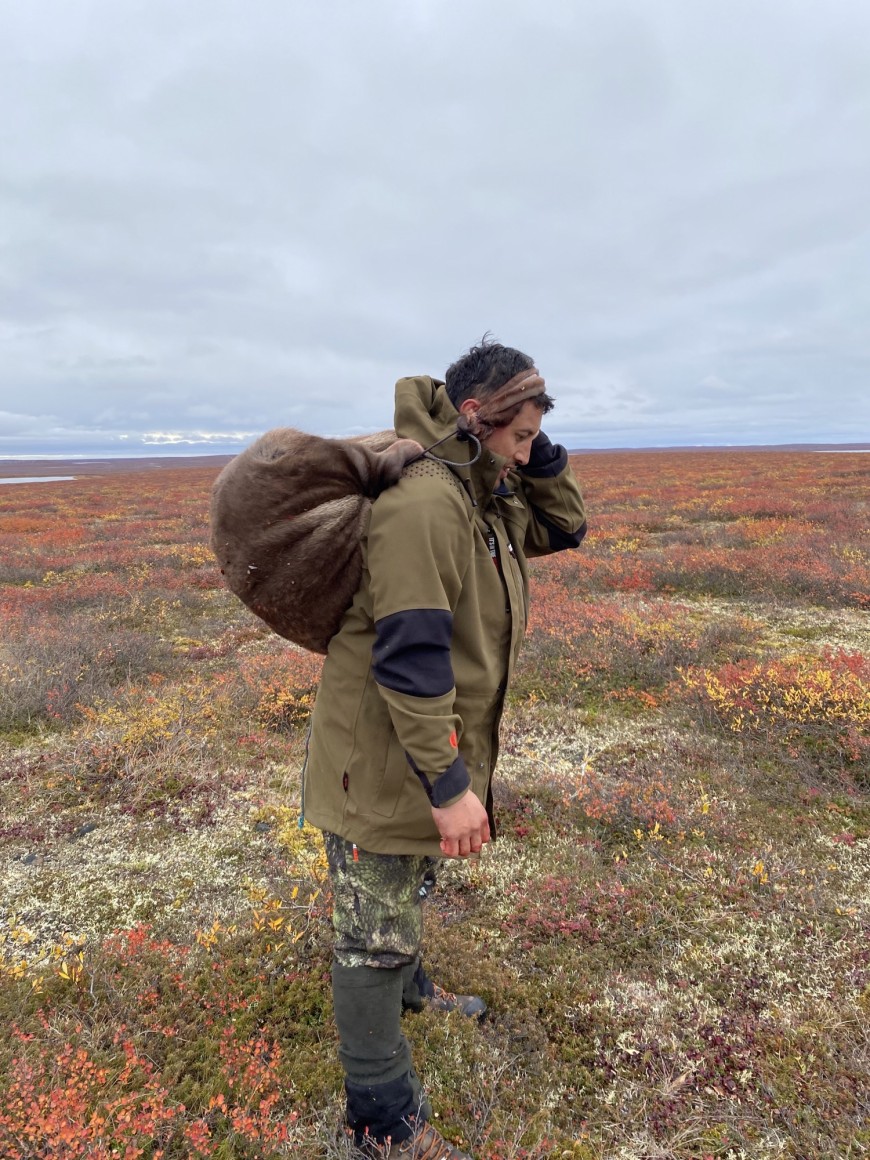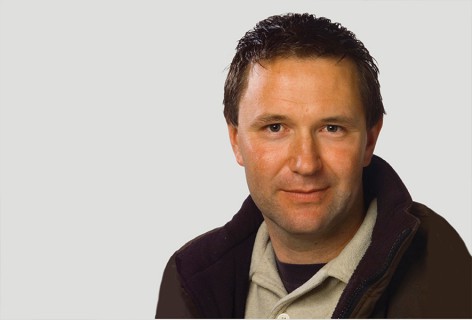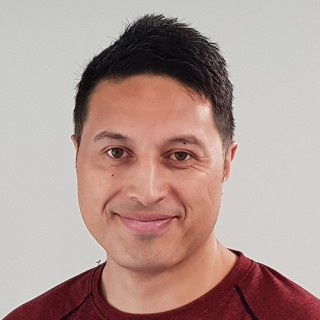Manaaki Whenua Manaaki Taiao researchers, Puke Timoti and Dr Phil Lyver collaborated with a group of 14 kaitiaki from different Iwi to engage with the Chipewyan Dene people of Łutsel K'e in the Northwest Territories, Canada in September.
Łutsel K'e is a community of around 300 people in the east arm of the Great Slave Lake, about 190 kilometres east of Yellowknife, the capital of the Northern Territories.
The trip was a joint-funded project between Manaaki Whenua and the Biological Heritage National Science Challenge, aimed at exposing rangatahi and kaitiaki to a different indigenous community to experience how the Dene people manage their environments and transfer knowledge through generations.
From Ruatāhuna to Łutsel K'e
While Karioi White (Tūhoe) was a world away from her home in Ruatāhuna in the heart of Te Urewera, she felt a deep sense of kinship with the Dene people.

Karioi White learns scraping a moose hide
“The people were so warm and welcoming – their kaumātua [elders] reminded me of the faces of my whānau at home. I learned so much from their kaumātua about the importance of transferring knowledge to the next generation. If we have that knowledge, we understand our whenua [land] and can protect it.
Like Māori, the Dene are traditionally an “oral culture,” where legends, laws, humour and learning have been shared by word of mouth, often woven into cherished cultural tales. Today, Dene storytelling remains a revered art form.
Kariori runs Te Whare o Rehua, a Tūhoe Tuawhenua Trust programme aimed at rekindling the connection between rangatahi and the ngahere [forest] by using kaumātua to share their knowledge with young people. She said seeing the Dene people’s oral culture in action reaffirmed her commitment to this kaupapa at home.
She was also impressed with the way the Dene people were so connected to their land – they knew the wood that needed to be chopped to make fires, which lakes to fish from, which animals were precious, and which were a food source.
“I also loved meeting their rangatahi – like in New Zealand, many young people now grow up in cities, but it was amazing to see these young people return to their homeland and reconnect with their culture.”
Kairangahau gain knowledge from Dene people
Puke Timoti (Tūhoe) also found a deep sense of connection during the exchange with the Dene people.

Manaaki Whenua Kairangahau Puke Timoti carrying caribou traditional style
“Like our people they have an intrinsic connection with their land and animals. They are also dealing with the impacts of climate change, colonisation, urbanisation, and tension with government.”
Like Karioi, Puke was also fascinated to see the strength of the community’s oral storytelling and systems of knowledge transfer.
Phil Lyver spent three years living and working in the Łutsel K'e Dene First Nation earlier in his career and found his return both a bit nerve-wracking and humbling.
“As an Indigenous researcher working with Indigenous communities you are always conscious about how you are going to be received when you return, which includes asking yourself ‘what did your research actually deliver for the people?”
One of the confronting issues for the Lutsel K’e community has been a large-scale decline in a key barren-ground caribou herd upon which the people rely on so heavily That was hard to witness.
“Caribou are vital for the Lutsel K’e community – so a decline in the herd from 450,000 animals to around 10,000 has had significant cultural impacts so a focus of our cultural exchange was to understand how the people had adapted to the change in caribou numbers, but also the wider environmental conditions under a climate change scenario," says Phil.
The Manaaki Whenua team would like to thank the Łutsel K'e Dene First Nation for their generosity, and plan to extend the exchange programme in the future.
Key contacts


